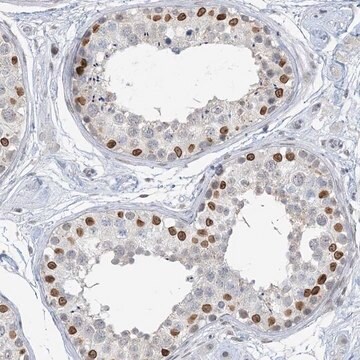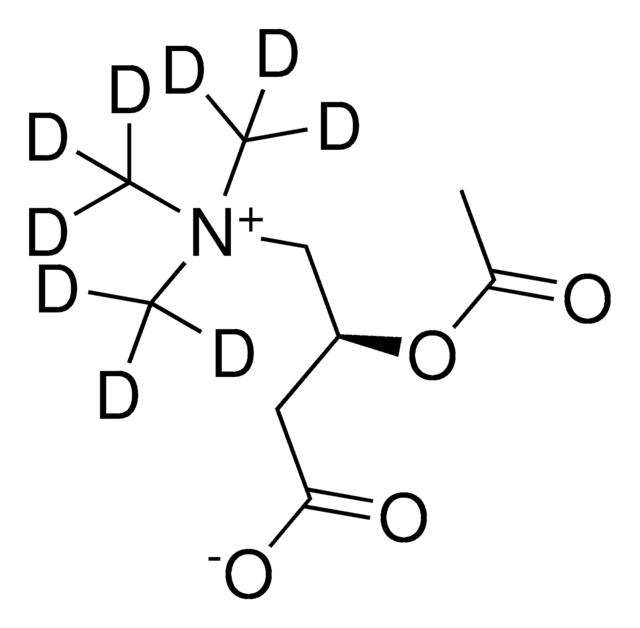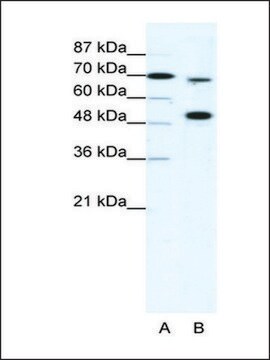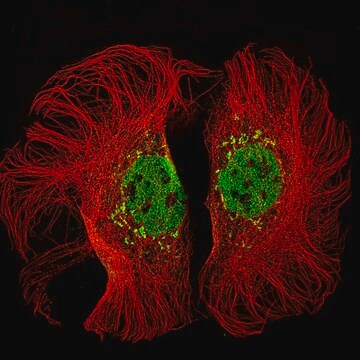ABE1867
Anti-MLL4 Antibody
from rabbit, purified by affinity chromatography
Sinônimo(s):
Histone-lysine N-methyltransferase 2D, ALL1-related protein, Lysine N-methyltransferase 2D, Myeloid/lymphoid or mixed-lineage leukemia protein 2
About This Item
Produtos recomendados
fonte biológica
rabbit
Nível de qualidade
forma do anticorpo
affinity isolated antibody
tipo de produto de anticorpo
primary antibodies
clone
polyclonal
purificado por
affinity chromatography
reatividade de espécies
human, mouse
técnica(s)
ChIP: suitable (ChIP-seq)
western blot: suitable
nº de adesão NCBI
nº de adesão UniProt
Condições de expedição
ambient
modificação pós-traducional do alvo
unmodified
Informações sobre genes
human ... KMT2D(8085)
Descrição geral
Especificidade
Imunogênio
Aplicação
Epigenetics & Nuclear Function
Chromatin Immunoprecipitation (ChIP) Analysis: A representative lot detected MLL4 (MLL2) occupancy on the PPAR 1, but not the PPAR 2, proximal promoter in MEFs, while MLL4 enrichment was found on PPARγ1, PPARγ2, and C/EBP promoters in differentiating murine brown preadipocytes (Cho, Y.W., et al. (2009). Cell Metab. 10(1):27-39).
ChIP-Sequencing (ChIP-seq) Analysis: A representative lot detected MLL4 MLL4 genomic enrichment sites in a cell type- and differentiation stage-specific manner (Lee, J.E., et al. (2013). Elife. 2:e01503).
Immunoprecipitation Analysis: A representative lot immunoprecipitated MLL3/MLL4 complex components (UTX, PTIP, RbBP5 and PA1) and C/EBPβ, but not Menin, from mouse brown preadipocyte nuclear extracts prepared at day 2 of adipogenesis (Lee, J.E., et al. (2013). Elife. 2:e01503).
Qualidade
Western Blotting Analysis: A 1:5,000 dilution of this antibody detected 50 ng of recombinant human MLL4 fragment.
Descrição-alvo
forma física
Armazenamento e estabilidade
Outras notas
Exoneração de responsabilidade
Não está encontrando o produto certo?
Experimente o nosso Ferramenta de seleção de produtos.
Código de classe de armazenamento
12 - Non Combustible Liquids
Classe de risco de água (WGK)
WGK 1
Certificados de análise (COA)
Busque Certificados de análise (COA) digitando o Número do Lote do produto. Os números de lote e remessa podem ser encontrados no rótulo de um produto após a palavra “Lot” ou “Batch”.
Já possui este produto?
Encontre a documentação dos produtos que você adquiriu recentemente na biblioteca de documentos.
Nossa equipe de cientistas tem experiência em todas as áreas de pesquisa, incluindo Life Sciences, ciência de materiais, síntese química, cromatografia, química analítica e muitas outras.
Entre em contato com a assistência técnica








